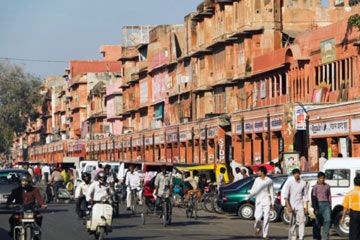Nearly 200 million people call Brazil home, making it the fifth most populous nation in the world today [source: Nations Online]. Only a fraction of those are native to the country, however. Brazil was colonized in the 16th century by Portugal, and later welcomed large numbers of Germans, Italians, Spaniards and Poles. About 2 million African slaves were brought to the country over a 300-year period, as well [source: Capoeira]. Today, roughly 55 percent of Brazilians are white, with about 45 percent of black or mixed ancestry [source: Kwintessential].
Despite Brazil's immense physical size (it covers nearly half the continent of South America), most of the country's residents live within 200 miles of the Atlantic coast [sources: Every Culture, InfoPlease]. Its interior, home to the mighty Amazon River, is considered somewhat wild terrain. People of African descent are mostly clustered in the northeast, those of European and Japanese ancestry mainly reside in the south and southeast and the few indigenous residents live in the north and central-west [source: Brazil-Travel-Northeast].
Advertisement
Due to early Portuguese explorers, Brazilians today speak Portuguese and are largely Catholic, which means holidays like Christmas and Easter are important nationwide. Due to the country's heterogeneous population, racial divisions are far less common than divisions by social class. In fact, Brazilians are rather fixated on class distinctions. When two Brazilians meet, they quickly size up each other's appearance and speech to determine who is more educated and thus of a higher social class. The person who has the higher standing has more authority, and the other person must defer to him or her [source: Every Culture]
No matter your social class, Brazilians are very family-oriented. Women tend to stay home and take care of the kids (although the number of employed women is definitely rising), and if they work, their income is considered supplementary. Children live at home until they marry, and when they do move out, they live near their parents. Weekends are spent visiting with relatives. Despite such familial closeness, it's accepted that many Brazilian men operate under machismo, a concept brought over by the Portuguese colonizers. Machismo translates into a system where men are viewed as strong and powerful and must prove their virility through premarital and extramarital affairs. Women, in contrast, are considered weak and are expected to remain chaste until marriage and faithful after.
Brazilians love soccer (called futebol) and their wild, pre-Lenten celebration of Carnival (which we'll cover later in the article). That's partly because they're an exuberant people, enthralled not only with lively events like Carnival, but also in the bustle of city life; in the samba and bossa nova music they contribute to the world; in their propensity to touch and be personally expressive; and even in their relaxed attitude toward nudity [source: Every Culture].



